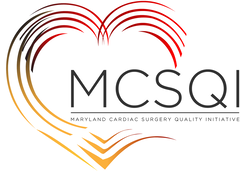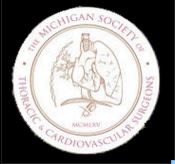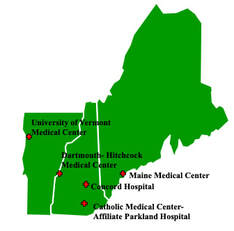The Atlantic Cardiovascular Quality Initiative (ACVQI)

The Atlantic Cardiovascular Quality Initiative is a multidisciplinary group of health care professionals dedicated to improving the care of adult cardiac patients in Maritime Canada. Participating Centers include: Saint John Regional Hospital Saint John, New Brunswick, Queen Elizabeth II Health Sciences Centre, Halifax, Nova Scotia, and Health Sciences Centre, St. John’s, Newfoundland.
In support of this mission our key objectives are:
(1) Develop and share observational and administrative data sources of high quality to allow us to evaluate the care of our patients
(2) Study these data to determine:
a. Patterns of and trends in the utilization of cardiac care to facilitate planning of health care resources
b. Access to cardiac procedures in an effort to eliminate barriers to care for our patient populations
c. Relationships between processes of care and outcomes to allow the best possible outcomes for our patients
d. Longitudinal outcomes of cardiac procedures to address issues of durability and costs, thus optimizing decision making for patients and sustainability for the health care system
(3) Conduct research that contributes to the goals above
(4) Facilitate the implementation of quality initiatives based on our findings
(5) Facilitate the training of new researchers in the field of outcomes research
In support of this mission our key objectives are:
(1) Develop and share observational and administrative data sources of high quality to allow us to evaluate the care of our patients
(2) Study these data to determine:
a. Patterns of and trends in the utilization of cardiac care to facilitate planning of health care resources
b. Access to cardiac procedures in an effort to eliminate barriers to care for our patient populations
c. Relationships between processes of care and outcomes to allow the best possible outcomes for our patients
d. Longitudinal outcomes of cardiac procedures to address issues of durability and costs, thus optimizing decision making for patients and sustainability for the health care system
(3) Conduct research that contributes to the goals above
(4) Facilitate the implementation of quality initiatives based on our findings
(5) Facilitate the training of new researchers in the field of outcomes research
Clinical Outcomes Assessment Program (COAP)

Hospitals and clinicians committed to improving patient care in the Pacific Northwest will find a collaborative partner in the Cardiac Care Outcomes Assessment Program (COAP). COAP is a non-profit, physician-led organization that utilizes clinical data to let providers know how they’re doing as compared to their peers, offers a safe forum for discussing challenges in cardiac care, and identifies local expertise and promising practices to share across the region.
Launched in 1997, COAP serves all Washington State hospitals that perform percutaneous cardiac intervention and/or adult cardiac surgery, plus a few sites outside the state. COAP convenes clinicians from across the region at monthly meetings to review data, discuss current challenges, and identify areas for improvement. Individual hospitals and physicians are supported with real time data reports and access to COAP community resources and expertise. We convene members every June to review the prior year’s data, share practice, discuss current issues in cardiac care, and further build community. COAP’s purpose is to support all hospitals and clinicians in achieving the highest levels of patient care and outcomes.
As a demonstration of the region’s commitment to quality, all COAP member sites have agreed to participate in public reporting.
Launched in 1997, COAP serves all Washington State hospitals that perform percutaneous cardiac intervention and/or adult cardiac surgery, plus a few sites outside the state. COAP convenes clinicians from across the region at monthly meetings to review data, discuss current challenges, and identify areas for improvement. Individual hospitals and physicians are supported with real time data reports and access to COAP community resources and expertise. We convene members every June to review the prior year’s data, share practice, discuss current issues in cardiac care, and further build community. COAP’s purpose is to support all hospitals and clinicians in achieving the highest levels of patient care and outcomes.
As a demonstration of the region’s commitment to quality, all COAP member sites have agreed to participate in public reporting.
Maryland Cardiac Surgery Quality Initiative (MCSQI)

In 2013, the cardiac surgery community united efforts and established the Maryland Cardiac Surgery Initiative (MCSQI, http://www.mcsqi.org/ ). The Mission of MCSQI is to
continuously improve the clinical quality of cardiac surgery provided in the state of Maryland through data analysis, research, and education. Cardiac surgeons, cardiovascular service line administrators, data managers, perfusionists and other providers from the ten cardiac surgery programs in the state work together to compare data, share best practices, perform outcome analyses and implement process improvements. MCSQI serves as a peer-to-peer value exchange whose work promotes the adoption of evidence-based best practices, ensures fair and accurate reports and enhances healthcare policies by providing a voice within the state’s legislative community through collaboration with the Maryland Healthcare Commission. Key goals include enhancing clinical effectiveness, increasing accountability, appropriately reducing costs, decreasing regional variations, and establishing stronger alliances among heart team members.
continuously improve the clinical quality of cardiac surgery provided in the state of Maryland through data analysis, research, and education. Cardiac surgeons, cardiovascular service line administrators, data managers, perfusionists and other providers from the ten cardiac surgery programs in the state work together to compare data, share best practices, perform outcome analyses and implement process improvements. MCSQI serves as a peer-to-peer value exchange whose work promotes the adoption of evidence-based best practices, ensures fair and accurate reports and enhances healthcare policies by providing a voice within the state’s legislative community through collaboration with the Maryland Healthcare Commission. Key goals include enhancing clinical effectiveness, increasing accountability, appropriately reducing costs, decreasing regional variations, and establishing stronger alliances among heart team members.
The Michigan Society of Thoracic and Cardiovascular Surgeon (MSTCVS-QC)

The Michigan Society of Thoracic and Cardiovascular Surgeons (MSTCVS, http://www.mstcvs.org/) was formed in 1965 as a statewide society for Cardiac and Thoracic surgeons, and was utilized as a way to convene the membership once per year to discuss cases and issues involving the specialty of Thoracic Surgery. In the 1990’s with the realities facing the specialty and the maturation and utilization of the STS database, a forum was created at the state meeting to discuss outcomes, concepts, approaches and ideas for improving cardiac surgery. This platform evolved into all sites in the state (33) voluntarily sharing unblinded data concerning processes of care and outcomes. The quality collaborative (http://www.mstcvs.org/qc/) started in 2000, and in 2005 with the financial support of Blue Cross Blue Shield of Michigan added a coordinating center and dedicated surgical database.
Northern New England Cardiovascular Disease Study Group (NNECDSG)

One of the earliest efforts aimed at understanding the effect of CABG surgery on patient outcomes was the development of the Northern New England Cardiovascular Disease Study Group (NNECDSG, http://www.nnecdsg.org/) founded in 1987. The NNECDSG is a regional, voluntary, multi-disciplinary group of clinicians, hospital administrators, and health care research personnel who seek to improve continuously the quality, safety, effectiveness, and cost of medical interventions in cardiovascular disease. The following eight medical centers are regional members: Catholic Medical Center, Manchester, NH; Central Maine Medical Center, Lewiston, ME; Concord Hospital, Concord, NH; Dartmouth-Hitchcock Medical Center, Lebanon, NH; Eastern Maine Medical Center, Bangor, ME; Fletcher Allen Health Care, Burlington, VT; Maine Medical Center, Portland, ME, and Portsmouth Regional Hospital, Portsmouth, NH. The NNECDSG maintains registries for all patients receiving cardiac surgery, and percutaneous coronary interventions (totaling over 200,000 consecutive procedures) occurring at its eight participating medical centers. The NNECDSG has a rich history of successfully conducting and completing prospective cohort studies, including publishing over 93 articles on cardiac surgery in the peer-reviewed literature since its inception.
The NNECDSG houses a number of registries that track the clinical outcomes of all revascularization procedures performed by the participating institutions. From these databases, regional outcomes have been tracked and risk-adjusted models have been developed. Our prediction models are used to develop decision-making tools for clinicians and their patients. The NNECDSG maintains dedicated surgical, perfusion, anesthesiology and interventional cardiology registries that contain patient, procedural, and outcomes information.
The NNECDSG houses a number of registries that track the clinical outcomes of all revascularization procedures performed by the participating institutions. From these databases, regional outcomes have been tracked and risk-adjusted models have been developed. Our prediction models are used to develop decision-making tools for clinicians and their patients. The NNECDSG maintains dedicated surgical, perfusion, anesthesiology and interventional cardiology registries that contain patient, procedural, and outcomes information.
Providence Heart Institute

The Providence Heart Institute is a professional collaborative dedicated to excellence in clinical outcomes, research, education and stewardship. It is a collaborative organization of cardiovascular clinical and administrative professionals who practice at Providence Service Centers in Alaska, California, Montana, Oregon, Texas and Washington. Our 22 cardiac surgery programs have an annual collective volume of 5,900 cases and the 26 cardiology programs perform approximately 16,000 PCIs / year. The members meet bimonthly to discuss cardiovascular topics of interest, learn from nationally recognized thought leaders, examine and reduce variances in key cardiac surgery and cardiology outcomes and promote system-wide collaborative research. Monthly executive committee meetings are held to discuss ongoing research, vet proposed research topics and plan meetings. Members include Cardiac Surgeons, Cardiologists, Anesthesiologists, Perfusionists, Physician Assistants, Nurses, Statisticians, Data Managers and Cardiac service line administrators. Current topics of interest are endocarditis, early extubation for Isolated CABG and reducing clinical variation.
